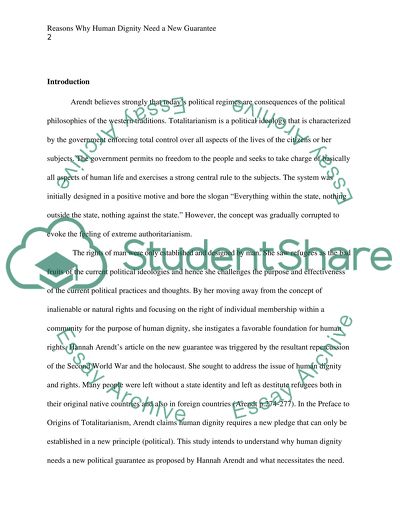Cite this document
(“Totalitarianism: Reasons Why Human Dignity Need a New Guarantee Essay”, n.d.)
Totalitarianism: Reasons Why Human Dignity Need a New Guarantee Essay. Retrieved from https://studentshare.org/history/1462165-in-the-preface-to-origins-of-totalitarianism
Totalitarianism: Reasons Why Human Dignity Need a New Guarantee Essay. Retrieved from https://studentshare.org/history/1462165-in-the-preface-to-origins-of-totalitarianism
(Totalitarianism: Reasons Why Human Dignity Need a New Guarantee Essay)
Totalitarianism: Reasons Why Human Dignity Need a New Guarantee Essay. https://studentshare.org/history/1462165-in-the-preface-to-origins-of-totalitarianism.
Totalitarianism: Reasons Why Human Dignity Need a New Guarantee Essay. https://studentshare.org/history/1462165-in-the-preface-to-origins-of-totalitarianism.
“Totalitarianism: Reasons Why Human Dignity Need a New Guarantee Essay”, n.d. https://studentshare.org/history/1462165-in-the-preface-to-origins-of-totalitarianism.


